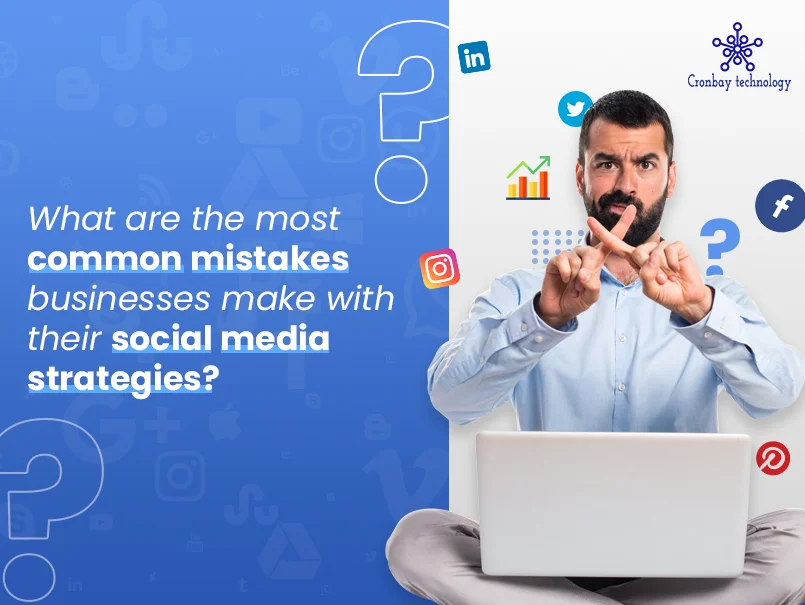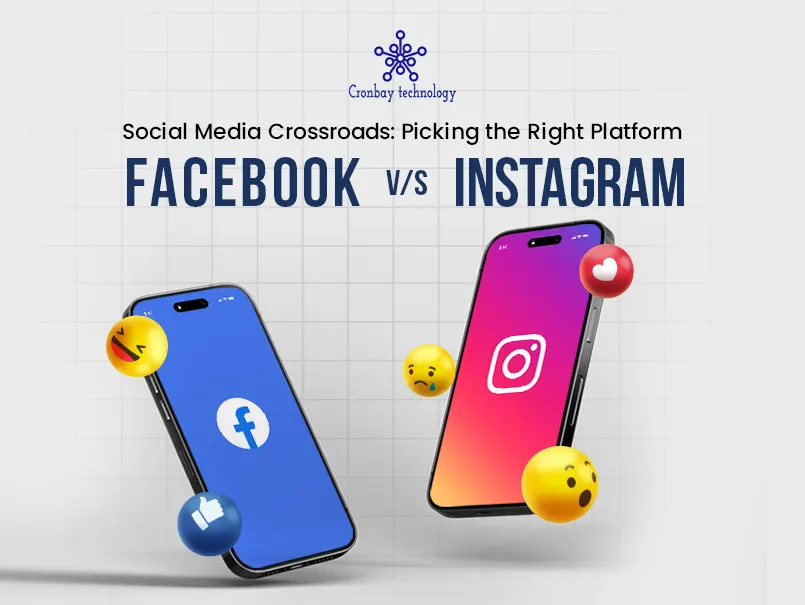A crucial first step for every small company is establishing a presence on social media and guarding against the associated hazards. Many hazards must be avoided, though. Your small business's marketing strategy should include social networking. It may be difficult to measure social media ROI, and typical social media blunders can negatively influence your outcomes, unlike traditional marketing projects.
It's impossible to ignore the advantages of a well-executed social media campaign. According to Statista, 77% of Americans use social media, making it an excellent tool for connecting with potential consumers and keeping in touch with those you already have. In addition, you'll obtain more significant results from your social media efforts if you don't make these blunders.
What common mistakes do businesses make when using social media?
-
Disrespectful use of social media
Avoid publishing anything personal on your company's social media sites. People may readily link your social media accounts to your company, so you should be cautious about what you post there. In addition, customers that don't agree with you are simple to alienate. -
Choosing the incorrect channels to promote your content
Even though Facebook has more than 2 billion monthly users, it may not be your company's best social media channel or brand. You need to register company profiles on all leading social networks for the most outstanding results and test each to determine which generates the most traffic and leads. According to Adobe's State of Digital Advertising study, social media is three times more likely to attract new consumers to stores. -
Posting an excessive amount of data
You're not simply talking to your consumers when you post on social media. Anybody, including your competitors, may see your communications. In addition, you don't want your competition figuring out precisely which things you're reducing and by how much you're doing so on social media. It's critical to learn how to attract curiosity on social media without giving away too much information. -
Failing to Think like a consumer
You're likely to anticipate certain behaviours from your favourite businesses on social media, such as rapid answers, simple access to their contact information, etc.
Be sure to think like your customers while developing a social media strategy and managing your company's accounts on social media. Ask yourself what they want and how you can provide it.
What are the biggest mistakes brands make with their social media communication?
The Wrong Audience Preaching
Every marketing channel has its advantages and disadvantages. To maximize the return on investment (ROI), clear objectives and methods must be established. If your goal is to improve traffic, revenue, leads, or customer support, you'll need to choose a strategy accordingly.
Avoiding Your Followers' Comments and Your Posts
When it comes to social media, think of it as a flower. It needs frequent maintenance. You'll kill it if you overwater or overfertilize it. For social media, the same holds. Keep an eye on what others are saying and answer as necessary. Posting in moderation is advised.
Ignoring or mishandling Negative Reactions
Negative feedback may damage your company's reputation, so it's essential to address it immediately. Your brand's image and reputation will suffer if you allow negative comments to develop into a raging inferno. Whatever their position, it must be accepted as soon as possible to avoid consequences.
Over-promoting and not engaging your followers.
A common mistake made by marketers is to ignore the "social" component of social media. Ask your consumers what they enjoy and what they'd want to see improved, and you'll get their feedback. Then, offer something of value, like discounts, promotions, or recommendations, to keep them engaged.
What mistakes do companies make with branding?
Let's look at some of the most frequent mistakes people make during the branding phase-
-
Inability to clearly articulate the brand's mission
Businesses require a degree of complexity. The goal of establishing your brand's mission is to identify the driving forces behind your company's existence and the challenges it seeks to address. The audience will relate to you better since you can be more deliberate about what you're saying. Without a clear goal in mind, you risk missing out on chances to connect with your target audience on a deeper level.
-
Constantly changing your mind.
Having a well-known and recognized brand helps to solidify your brand and provide a sense of trustworthiness. This sends a message to customers that you care about their perceptions of your brand. A lack of consistency in how your firm is portrayed can harm your reputation. When it comes to the importance of your company, you don't want this to happen.
-
Failure to follow a standard style guideline
The absence of a style guide is an issue that contributes to inconsistency. It serves as a guide to the design aspects that make up your brand. If you're working with a freelancer or an in-house designer, this is a great way to make sure they understand which design aspects are consistent with your brand and which are not.
-
Sticking with a lousy logo
For the most part, the first impression is the final one. The logo you choose for your company serves as the public face of your company's identity. If you settle for a mediocre design, you may look unprofessional and uninterested in how your consumers perceive you. These shortcomings may diminish the brand's effect and make the logo difficult to recall.
What are the mistakes we make in the process of building our identity?
Using a Fake Identity
To some degree or another, we've all been guilty of this at some point or another. We fear that if we don't conform to what we believe others expect of us. This may work in tiny doses, but it can become exhausting and hard to sustain if it's carried too far. On top of that, we're deceiving ourselves. In the long run, claiming to be someone you're not harming your brand.
Focusing on Yourself only.
To avoid becoming self-indulgent, your brand should showcase your personality and ideals while still keeping an eye on its target audience. Instead of increasing your number of likes and followers, try to establish a genuine connection with those who are already interested in your work.
The Time Commitment is Underestimated
It takes time and effort to build a solid personal brand. But, then, it takes time to nurture and perfect it to the ultimate, magnificent product, much like a lovely flower. Don't expect to be a household name in a few months. Be prepared for a lot of work and patience. Establishing yourself and differentiating yourself from your competition will take some time.
Final Thoughts
Even if you avoid typical social media blunders, considerable commercial dangers exist. Therefore, a strategy for who may publish material and what kinds of things you'll share with your social media audience is essential.
Take the time to learn about libel and slander regulations and copyright concerns, which might lead to litigation or unforeseen company costs, by monitoring your social media accounts. You can also click here to take help from our experts to make your work easier.
Frequently Asked Questions
1. How to cope with unfavourable feedback on Social Media?
Ans.
- Comments and mentions are not to be ignored, so don't delete them or disregard them.
- Don't wait for the client to assume your position; be involved as soon as you can!
- When confronted with your social media blunder, maintain your humanity and authenticity.
- Create a crisis communication plan with clear responsibilities for each member of the team.
2. How have branding and advertising been affected by the rise of social media?
Ans. The advent of social media has brought about a fundamental shift in the way companies operate as a result of the incredible chances it provides for them to advertise their goods and services to a much wider audience and to construct a solid reputation for their brand. Many businesses have dedicated an entire department to the task of maximizing the benefits of social media marketing.






How could social media ruin your business?
Social media has made reports about poor customer service and disappointing goods spread much more rapidly than they could in the pre-social media era. As a result, keeping unfavorable publicity under control has become more challenging for corporations.
Businesses find it tough to keep track of harmful or libelous remarks about their brand on social media since it's a vast discourse in which everyone is welcome to participate. In addition, social media makes it more challenging to keep track of remarks and, if required, reply.
Insiders in your firm may accidentally reveal secret information, reducing your business's competitive advantage. When sensitive material is leaked on social media, it's out there for everyone to see.